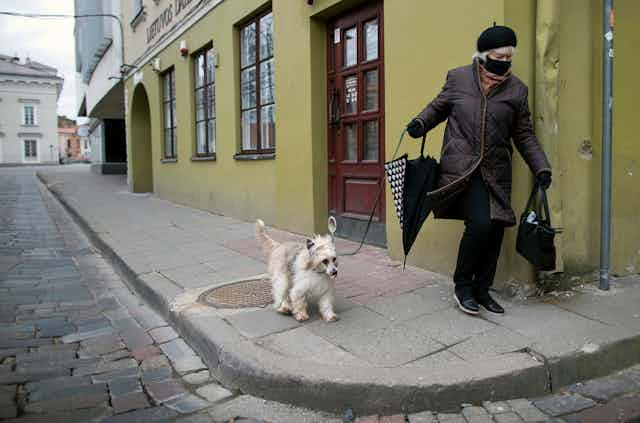
Curious Kids is a series for children of all ages. If you have a question you’d like an expert to answer, send it to CuriousKidsUS@theconversation.com.
Are people with pets less likely to die if they catch COVID-19? – Mika, age 13, Alexandria, Virginia
Because COVID-19 is a relatively new strain of a coronavirus, there has not been any research published about whether people with pets are less likely to die from contracting the virus.
However, I study animal and human interaction, and I’m aware of a great deal of research suggesting that people with pets are generally healthier and recover from illnesses faster than people without companion animals.
A brief history of pets
Evidence of people keeping pets, or companion animals, has been linked all the way back to early Egyptian times, some 5,000 years ago. One study found evidence of companion dogs going back to over 16,000 years ago in Belgium.
Today, pets live in households around the world.
Dogs are the most popular type of pet worldwide, but the exact numbers are difficult to accurately count. In the United States, over 38% of households have at least one dog and over 25% have at least one cat.
Pets are even more popular in New Zealand, where 68% of homes reported having one.
Pets make the pandemic better
Fido and Fluffy help people stay active, socially and physically.
People who are healthy before catching a virus like the flu have an increased chance to fully recover.
People at greater risk of becoming infected with and suffering complications from the coronavirus include those with conditions such as heart disease or high blood pressure. Regularly walking a pet dog, playing with a cat or engaging in the daily care of a companion animal can help to increase healthy behaviors, increasing the likelihood of recovering from serious illness.
One policy that has significantly affected people during the COVID-19 pandemic has been the social isolation, or “stay-at-home” orders, throughout the world. The majority of these orders encourage people to limit their contact with other people.
During stay-at-home periods, people are taking their dogs for walks, riding their horses, training their rabbits for agility tasks and generally building stronger emotional relationships with their pets. This may help reduce stress, anxiety and depression, especially during a global crisis.
So, having a pet may make people healthier – and being healthier may help them recover. And having a pet may also make stressful times a little easier to get through.
Hello, curious kids! Do you have a question you’d like an expert to answer? Ask an adult to send your question to CuriousKidsUS@theconversation.com. Please tell us your name, age and the city where you live.
And since curiosity has no age limit – adults, let us know what you’re wondering, too. We won’t be able to answer every question, but we will do our best.

